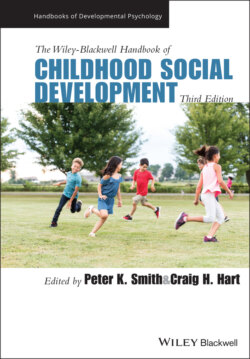Читать книгу The Wiley-Blackwell Handbook of Childhood Social Development - Группа авторов - Страница 78
Present Concerns and Future Developments: Cultural Editing
ОглавлениеAn evolutionary stance that begins with the EEA helps us to look to the past to prepare for the present and the future. One problem that evolution helps us to understand is the ongoing dismay of parents all over the world (Barkow, 2014, Barkow et al., 2012): many ambitious adolescents equate “success” with being a successful entertainer, especially with being a rapper or rock star. Parents who for generations have been farmers or glassblowers or members of the clergy learn, at times with chagrin, of their children’s ambitions. Almost everywhere, many mothers and fathers ask the same question, “why won’t the children listen?” The answer has to do with cultural editing.
Very briefly, this parental pain is the result of the new mass media subverting the psychological mechanisms underlying cultural editing. Cultural editing is a process without which we could not have evolved the distinctive human trait of massive cultural transmission (Barkow, 1989, 2014; Barkow et al., 2012). Our main advantage over other animal species is that, due, in part, to our ability to share attention and intention and to cooperate, we are the most cultural of the world’s species, we have evolved to adapt to our environment by socially transmitting vast encyclopedias of frequently useful information. That information is passed on within generations and across generations, but this is a very risky process: environments alter, errors occur, and exemplars die without having disseminated the knowledge they carry. And so, information that once was likely adaptive may now be lost or neutral or maladaptive or simply mistaken (Barkow, 1989). We therefore have been selected for editing mechanisms.
One such evolved mechanism is paying automatic attention to and learning preferentially from the high in status, that is, the prestigious. Exactly what is prestigious may differ over time and from society to society, what does not change is that human societies are hierarchical in terms of respect/prestige structures and that both children and adults attend preferentially to, and learn from, the high in status. In earlier environments this was an effective mechanism because the high in status were more likely to be doing things right, adaptively, than the low in status. For example, it was adaptive to respect and therefore attend to and learn from farmers whose crops were always healthy or to women whose babies grew and prospered or to potters whose work did not crack in the kiln: at least some of what was learned would likely have been useful practices, while the errors that reduced the status of some were less likely to be transmitted. In the modern era, however, this simple mechanism is being subverted because the people at the top of the prestige ladder are likely to be entertainers or athletes or simply fictitious characters. There is nothing wrong with wanting to be an entertainer or athlete, but only a tiny proportion of “wannabes” can make it to the top because modern media mean that society does not require a vast number of individuals in these fields. Worse, there is an opportunity cost because the young people are failing to learn from parents and other relatives and neighbors and teachers who do have locally relevant knowledge and behaviors that would be helpful in achieving local respect and prestige. These local sources of cultural knowledge are often ignored because they are perceived as being of much lower status than the athletes and entertainer (and some politicians) and “influencers” presented by social media: the cultural editing mechanism “attend to and learn preferentially from the high in status” has been subverted, hijacked by screens, and the cultural knowledge transmission process compromised.
The cultural editing framework leads to many questions about children’s social development. How does the learn‐preferentially‐from‐the‐high‐in‐status process change as the child grows? Is there a conflict between the evolutionary requirement that children be adapted to their current age and situation if they are to thrive or at least survive, and the need to acquire knowledge and values that will be valuable in adult life (e.g., if the local group laughs at school achievement but skill in STEM [Science, Technology, Engineering and Math] fields is key to future success)? Is some of the sturm und drang of adolescence a formally adaptive switch from perceiving parents as very high in status to perceiving other adolescents or non‐kind adults as very high in status and so learning from these new sources of cultural information? Are different categories of information processed differently at different ages? Do the cultural information editing mechanisms differ when biological sex differs? Do the different types of attachment discussed earlier in this chapter impact the operation of this cultural editing process? Are there distinct editing mechanisms that have not yet been identified? Are the mechanisms affected by family composition, health status, or by climate or subsistence economy?
Researchers in the social development of children have chosen their field wisely: There is no shortage of future research questions.
